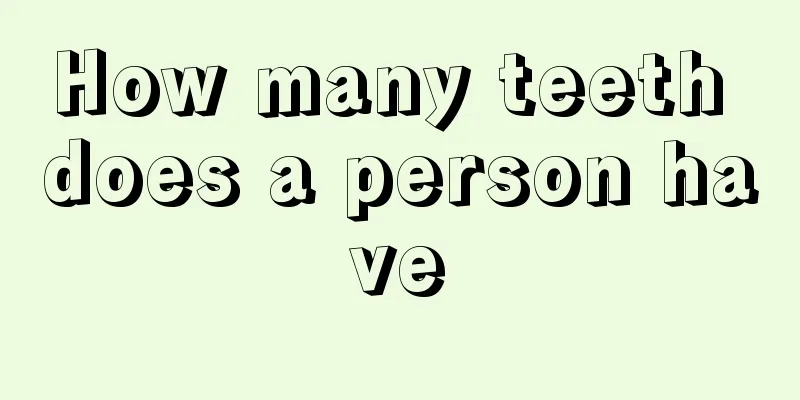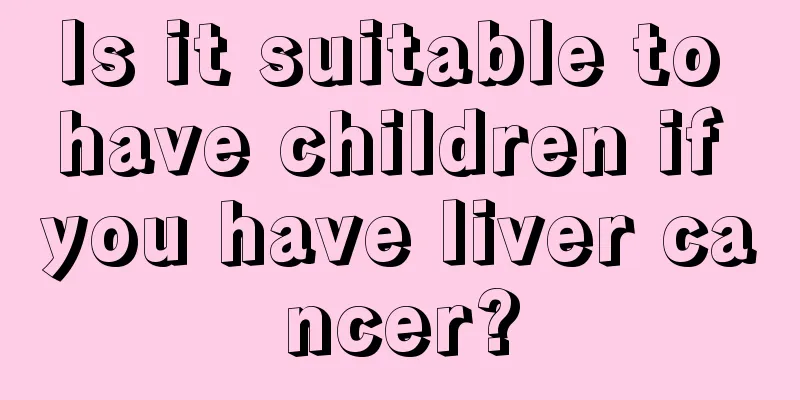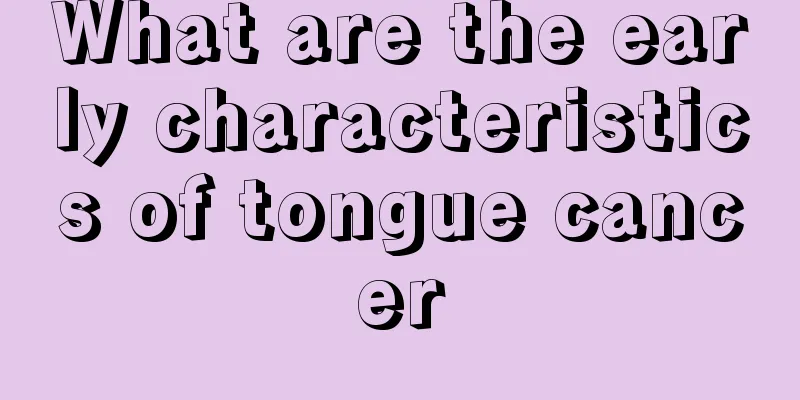How many teeth does a person have

|
People can have a good body only if they have good teeth. If the teeth are bad, you will have toothache every other day and you will not be able to taste the delicious food. However, many parents do not care much about the health of their children's teeth, thinking that their children's teeth will be replaced sooner or later. In fact, the number of teeth a person has in his lifetime is predetermined, and the number will not make much difference. So, how many teeth does a person have? People will experience a change of teeth once in their life, usually starting at around the age of 6. The deciduous teeth are replaced, and the new teeth that grow are permanent teeth. If the permanent teeth are lost, there is no way to grow them again, and they can only be replaced through artificial fillings. Deciduous teeth: They are a person's first set of teeth, totaling 20 teeth. It starts to sprout around 6 months after birth and is basically fully grown by 3 years old. Permanent teeth: They are a person’s second set of teeth, totaling 32 teeth. From around the age of 6, the deciduous teeth begin to fall out gradually, and the permanent teeth begin to erupt and replace the deciduous teeth. Except for the third molars, the remaining 28 teeth usually erupt by around the age of 12. The third molars erupt relatively late, between the ages of 18 and 30. Some never erupt or only partially erupt (a total of 4 teeth). In the primitive human stage, due to the wear of rough food, the height and width of the teeth continued to decrease, and the back teeth had enough space to move forward one by one, so that our third molars could begin to erupt at around the age of 16; but in modern times, as human food becomes more and more refined, the wear of teeth is decreasing. At the same time, the stimulation of the jawbone caused by chewing fine food is reduced, causing the jawbone to slowly degenerate and shrink. This inevitably causes insufficient space for tooth eruption, and the eruption time of wisdom teeth is correspondingly postponed to after adulthood, that is, between the ages of 18 and 30. Since this stage is generally believed to be the peak period of intellectual development, people often call these teeth "wisdom teeth", and the term "wisdom teeth" is given. How many teeth does a person have? Many scholars have conducted investigations and studies and proved that tooth impaction and jaw degeneration are closely related to human evolution and the development of civilization. That is, the higher the level of modern civilization, the more degenerated the jaw is, and the more chances of tooth impaction occur. During the process of human evolution, the brain has continued to grow and the jaw has gradually decreased, and the rate at which the jaw decreases is faster than that of the teeth. As a result, many people today have uneven teeth and incomplete eruption of teeth. This is all I have to say about how many teeth a person has. I would also like to remind you that many of you will grow new teeth around the age of 22. These are wisdom teeth. However, wisdom teeth do not have any substantial effect on people. Moreover, many of you will experience great pain when growing wisdom teeth, and they are prone to gum inflammation. |
Recommend
What are the hazards of silicone oil in shampoo
Shampoo is a must-have hair product for us, but r...
What causes tooth sourness?
Teeth are the most important part of people's...
Can nasopharyngeal carcinoma be treated with secondary chemoradiotherapy within three years?
Nasopharyngeal carcinoma generally requires corre...
What are the diagnostic criteria for melanoma
Melanoma is a highly malignant tumor, also known ...
Can bone cancer occur alone?
Bone cancer develops rapidly, has a poor prognosi...
Intravenous medication for high-grade invasive bladder cancer
High-grade invasive bladder cancer tumors include...
What fruits can you eat to prevent hair loss?
Many people feel at a loss when they encounter sy...
The efficacy of black sesame in treating constipation
Constipation is one of the most serious diseases ...
People need to know the causes of nasopharyngeal cancer
Nasopharyngeal carcinoma is one of the most commo...
What is the mechanism of neurohumoral immune regulation?
For most people, humoral immunity is a very unfam...
The difference between isolation and sunscreen
There is a big difference between isolation and s...
What is the TNM staging system for nasopharyngeal carcinoma and what should patients eat?
According to different symptoms, nasopharyngeal c...
How to exercise foot muscles
We all know that feet are a part of the body that...
Why do I have hair on my legs
Both men and women have leg hair, but girls have ...
The advantages and disadvantages of washing your hair with ginger
Ginger is generally used when cooking. Ginger is ...









